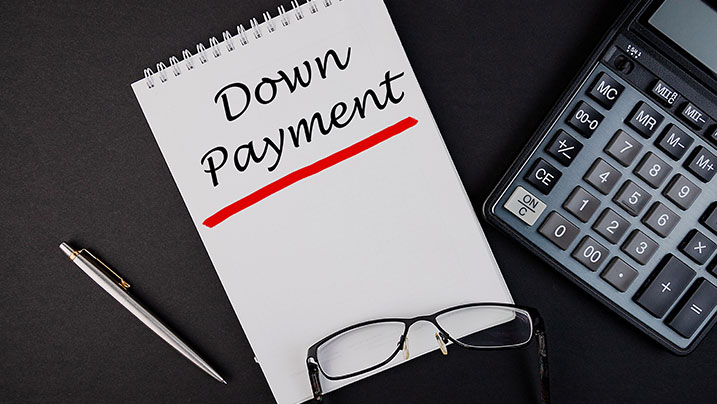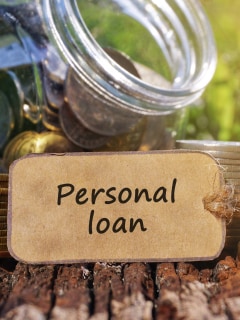CKYC Registry
-
Customer Service Contact us Service request Locate a branch
Find all the help you need
Scan the QR, get our app, and find help on your fingertips

Help CenterSupport topics, Contact us, FAQs and more
-
Login
Are you ready for an upgrade?
Login to the new experience with best features and services
-
Login
Are you ready for an upgrade?
Login to the new experience with best features and services
- Accounts
-
Deposits
IDFC FIRST Bank Deposits
View all Deposits -
Loans
IDFC FIRST Bank Loans
View all Loans - Wealth & Insure
-
Payments
IDFC FIRST Bank Payments
View all Payments -
Cards
IDFC FIRST Bank Cards
View all Cards - Blogs
- Corporate Account
-
Cash Management Services
IDFC FIRST Bank Cash Management Services
View all Cash Management Services - Supply Chain Finance
-
Corporate Lending
IDFC FIRST Bank Lending
View all -
Treasury
IDFC FIRST Bank Treasury
See more details - NBFC Financing
Support topics, Contact us, FAQs and more
- IDFC FIRST Bank Accounts
-
Savings Account
-
Corporate Salary
Account -
Senior Citizens
Savings Account -
First Power
Account -
Current Account
-
NRI Savings
Account -
TASC Institutional
Account -
Savings Account
Interest Calculator
- IDFC FIRST Bank Deposits
-
Fixed Deposit
-
Recurring Deposit
-
NRI Fixed Deposit
-
Safe Deposit Locker
-
FD Calculator
-
RD Calculator
- IDFC FIRST Bank Loans
-
Personal Loan
-
Consumer Durable
Loan -
Home Loan
-
Business Loan
-
Professional Loan
-
Education Loan
-
New Car Loan
-
Pre-owned Car Loan
-
Two Wheeler Loan
-
Pre-owned Two
Wheeler Loan -
Commercial Vehicle
Loan -
Gold Loan
-
Loan Against Property
-
Loan Against Securities
-
Easy Buy EMI card
-
Personal Loan
EMI Calculator -
Education Loan
EMI Calculator -
Home Loan
EMI Calculator -
EMI Calculator
-
Personal Loan Eligibility Calculator
- IDFC FIRST Bank Wealth & Insure
-
FIRST Select
-
FIRST Wealth
-
FIRST Private
-
Mutual Funds
-
Sovereign Gold Bond
-
Demat Account
-
Term Insurance
-
Life Insurance
-
Health Insurance
-
General Insurance
-
Bonds
-
Loan Against
Securities -
Portfolio Management
Service
- IDFC FIRST Bank Payments
-
FASTag
-
Credit Card
Bill Payments -
UPI
-
Funds Transfer
-
Forex Services
-
Pay Loan EMI
- IDFC FIRST Bank Cards
-
Ashva :
Metal Credit Card -
Mayura :
Metal Credit Card -
FIRST Millennia
Credit Card -
FIRST Classic
Credit Card -
FIRST Select
Credit Card -
FIRST Wealth
Credit Card -
FIRST WOW!
Credit Card -
Deals
-
Debit Cards
-
Co-branded Cards
-
Credit Card
EMI Calculator -
FIRST Corporate
Credit Card -
FIRST Purchase
Credit Card -
FIRST Business
Credit Card
- Premium Metal Credit Cards
-
AshvaLifestyle1% Forex₹2,999
-
MayuraLifestyleZero Forex₹5,999
-
FIRST PrivateInvite Only
- Best for travellers
-
MayuraZero ForexMetal₹5,999
-
Ashva1% ForexMetal₹2,999
-
FIRST WOW!Zero ForexTravelLifetime Free
-
FIRST SWYPTravel OffersEMI₹499
-
FIRST Select1.99% ForexLifestyleLifetime Free
-
FIRST Wealth1.5% ForexLifestyleLifetime Free
-
Club VistaraTravelLifestyle₹4,999
-
IndiGo IDFC FIRST Dual Credit CardTravelLifestyle₹4,999
- Max benefits, Free for life
-
FIRST Classic10X RewardsShoppingNever Expiring Rewards
-
FIRST Millennia10X RewardsShoppingNever Expiring Rewards
-
FIRST Select10X RewardsLifestyle1.99% Forex
-
FIRST Wealth10X RewardsLifestyle1.5% Forex
-
FIRST WOW!RewardsTravelZero Forex
-
LIC ClassicRewardsInsuranceShopping
-
LIC SelectRewardsInsuranceShopping
- Reward Multipliers
-
AshvaLifestyleMetal₹2,999
-
MayuraLifestyleZero Forex₹5,999
-
FIRST ClassicNever Expiring RewardsShoppingLifetime Free
-
FIRST MillenniaNever Expiring RewardsShoppingLifetime Free
-
FIRST SelectNever Expiring RewardsLifestyleLifetime Free
-
FIRST WealthNever Expiring RewardsLifestyleLifetime Free
- Rewards & Credit on UPI
-
FIRST Power+FuelUPI₹499
-
FIRST PowerFuelUPI₹199
-
FIRST EA₹NVirtual1% Cashback₹499
-
FIRST DigitalVirtualUPI₹199
-
IndiGo IDFC FIRST Dual Credit CardUPITravelDual cards
- Fuel and Savings
-
FIRST PowerRewardsUPI₹199
-
FIRST Power+RewardsUPI₹499
-
LIC ClassicRewardsInsuranceShopping
-
LIC SelectRewardsInsuranceShopping
- Express and Flaunt
-
AshvaMetal1% Forex₹2,999
-
MayuraMetalZero Forex₹5,999
-
FIRST SWYPEMIOfferMAX₹499
-
FIRST MillenniaRewardsShoppingLifetime Free
- FD Backed rewarding Credit Cards for all
-
FIRST EA₹NVirtualCashback₹499
-
FIRST WOW!Zero ForexTravelLifetime Free
-
CreditPro Balance TransferTransfer & SaveReduce InterestPay Smartly
- IDFC FIRST Bank NRI Forex Solutions
-
Send money to India-Wire transfer
-
Send money to India-Digitally
-
Send money abroad
-
Max Returns FD (INR)
- IDFC FIRST Bank MSME Accounts
-
Platinum Current
Account -
Gold
Current Account -
Silver Plus
Current Account -
Merchant Multiplier
Account -
Agri Multiplier
Account -
TASC Institutional
Account -
Dynamic Current
Account -
World business
Account -
First Startup
Current Account
- IDFC FIRST Bank Business Loans
-
Business Loan
-
Professional Loan
-
Loan Against Property
-
Business Loan for Women
-
Working Capital Loan
-
Construction Equipment Loan
-
Machinery Loan
-
Healthcare Equipment Loan
- IDFC FIRST Bank Business Solutions
-
Payment Solutions
-
Tax Payments
-
Doorstep Banking
-
Point of Sale (POS)
-
Escrow Accounts
-
NACH
-
Payment Gateway
-
UPI
-
Virtual Accounts
-
As per amendment in the Income Tax Rules, PAN or Aadhaar are to be mandatorily quoted for cash deposit or withdrawal aggregating to Rupees twenty lakhs or more in a FY. Please update your PAN or Aadhaar. Kindly reach out to the Bank’s contact center on 1800 10 888 or visit the nearest IDFC FIRST Bank branch for further queries.
-
-
Most Searched
Sorry!
We couldn’t find ‘’ in our website
Here is what you can do :
- Try checking the spelling and search
- Search from below suggestions instead
- Widen your search & try a more generic keyword
Suggested
Get a Credit Card
Enjoy Zero Charges on All Commonly Used Savings Account Services
Open Account Now
A down payment is a common term that you hear when purchasing expensive products with a loan. Used while buying a house, a car, or other expensive items, a down payment has ramifications for lenders and borrowers.
A down payment is not just a mere formality to qualify for a loan. It is also a reflection of the borrower's financial status and credibility, and it might have a long-term impact on your borrowing rates. Thus, it is important to understand how down payments operate so you can make the best financial decision possible.
Let’s explore what a down payment is.
What is a down payment?
A down payment is an initial, one-time payment you make when making a big purchase such as a home or car. You can use various methods like cash, check, credit card, or online transactions to pay it. This payment lowers the total amount you will need to borrow from a lender. In fact, IDFC FIRST Bank gives you the freedom to decide the amount of down payment you want to make. Most products, even high-cost items like smartphones and laptops, can be financed entirely through IDFC FIRST Bank. The interest rate is among the lowest in the market, although it depends on your credit score.
READ MORE
How much should you put down as a down payment?
Sometimes, you, and not the seller, decide the down payment amount. While the ball is in your court, you are advised to consider other expenses before choosing the amount. Some people believe in paying the greater share as a down payment, whereas others insist on paying a small amount as a down payment.
That said, the decision to not make a down payment is not always up to you. Certain lenders impose a minimum down payment requirement (but you can pay more if you like). They do so to reduce their risk. The more down payment a borrower makes, the less risky he or she is for the lender. Paying more down payment also ensures that you do not have to worry about your property or car being seized by the lender to reclaim their money.
Down payments might have a psychological effect as well. They signify to the lenders that you have something to lose. This positive sign of your ability to repay the loan boosts your chances of getting future financing approved.
What is a down payment calculator?
Calculating the amount of money you need to make a down payment on a house or any other big-ticket item is not easy. However, with the help of a down payment calculator, you can do it instantly. It is a useful tool that helps you calculate the amount of money you will need to put down on a house or any other expensive item when you apply for a loan. It also helps you calculate your EMIs.
The down payment calculator has a formula section where you can enter the asset's overall value, the down payment proportion, the loan rate of interest, the processing costs, and the loan term in years. The down payment calculator displays the down payment amount and the loan EMI to pay back the loan.
The down payment calculator saves you time and provides clear insights. Through just a few basic details, it instantly gives you accurate information, allowing you to budget wisely and make calculated decisions.
How do down payments work?
A buyer makes a down payment as their initial investment in a purchase. It can be a property, vehicle, etc. For example, if you buy a house for Rs.1 crore and pay Rs.10 lakh as a down payment, that upfront payment covers 10% of the total cost. You finance the rest through a loan. Making a larger down payment usually leads to smaller monthly payments. Lenders view a larger down payment as a sign of your financial commitment, which lowers their risk. So, they may offer better interest rates as part of their loan terms.
However, carefully assess your financial situation before you choose the size of your down payment. Pay what you can realistically afford to minimise future financial stress.
Types of down payment
Down payments vary based on what you buy. Let's explore some types:
Home purchase
Typically, home buyers in India pay around 10% to 20% of the property's cost upfront. Some opt for a small percentage, while others pay more to reduce their loan amount. Different banks have different criteria. Typically, the higher the down payment, the lower will be the monthly EMI. This can lead to less burden in the long run.
Auto purchase
Cars, bikes, or scooters, all need some initial payment. The remainder gets converted into monthly instalments. Dealerships and banks set the minimum down payment. For most vehicles, buyers provide around 10% to 30% of the vehicle's cost upfront. Some go lower while others choose a larger down payment to reduce their EMI burdens.
Gold
Gold holds special value in Indian culture. Many now opt for easy monthly instalments (EMI) to buy gold jewelleries. Here, the down payment becomes crucial. The upfront amount can vary based on the jewellery value, buyer's creditworthiness, and specific loan terms.
Benefits of a large down payment
A substantial down payment can have significant advantages:
Lower monthly bills
A big down payment reduces your monthly instalments. Whether you buy a car, gold, or a house, paying more upfront cuts down your future payments.
Interest savings
With a reduced loan amount, you pay less interest. Over time, this means significant savings, especially for big purchases like homes.
Better loan approval chances
A large down payment may make the lender view you as a less risky borrower, leading to quicker and more favourable loan terms.
Ownership comes faster
A large down payment means you will own your asset, be it a car, gold, or home sooner. It's always a good feeling to hold a clear title to your possessions.
Negotiation power
A big payment can boost your bargaining power. Be it a car dealer or a home seller, they might offer you better deals, discounts, or perks based on how you negotiate.
As you can see, a high down payment can lead to lower monthly expenses, quicker ownership, decreased interest expenses, more favourable loan conditions, and enhanced financial stability.
Paying off a loan
A down payment is the initial payment made to secure a loan for a purchase. Paying off a loan means repaying what you borrowed, plus any interest, over a predetermined period. So, while a down payment decreases your loan amount initially, completing your loan payments ends your financial commitment.
Frequently Asked Questions
Is a down payment the same as a deposit?
In most cases, both mean the same thing: paying a part of the total price to buy a car, home, gold, etc. But sometimes sellers have different rules for what counts as a down payment or a deposit. So, always read the terms beforehand.
Why is it important to have a down payment?
Making a down payment lowers your loan amount, interest costs, and your monthly EMIs. This could help you pay off the loan faster. So, saving for a down payment is important to make your loan more manageable and affordable.
Why do lenders require down payments?
By requiring a down payment, lenders reduce their risk. A down payment shows commitment from the borrower. It means the borrower owns a portion of the property cost, which means they share the financial responsibility. Additionally, a down payment reduces the amount borrowed, making monthly payments more manageable. As a result, down payments benefit both parties.
The down payment is an essential tool for both the lender and the borrower. It helps reduce the risk for lenders and lowers the loan amount a borrower needs to apply for. If you still have questions regarding what a down payment is, feel free to get in touch with us or visit any of our branches.
Disclaimer
The contents of this article/infographic/picture/video are meant solely for information purposes. The contents are generic in nature and for informational purposes only. It is not a substitute for specific advice in your own circumstances. The information is subject to updation, completion, revision, verification and amendment and the same may change materially. The information is not intended for distribution or use by any person in any jurisdiction where such distribution or use would be contrary to law or regulation or would subject IDFC FIRST Bank or its affiliates to any licensing or registration requirements. IDFC FIRST Bank shall not be responsible for any direct/indirect loss or liability incurred by the reader for taking any financial decisions based on the contents and information mentioned. Please consult your financial advisor before making any financial decision.
The features, benefits and offers mentioned in the article are applicable as on the day of publication of this blog and is subject to change without notice. The contents herein are also subject to other product specific terms and conditions and any third party terms and conditions, as applicable. Please refer our website www.idfcfirstbank.com for latest updates.























